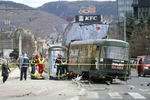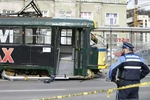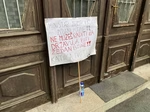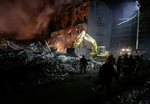Expert warns that actions in Bosnia's Serb region mean a 'coup par excellence'

Nedim Ademovic, a constitutional law expert, told N1 that if the parliament of Bosnia's Serb-majority Republika Srpska entity, adopts a law which stipulates ignoring of the decisions of the Constitutional Court of Bosnia and Herzegovina, it will mean the “beginning of legal secession” of the entity from the state. In that case, as he assessed, Bosnia and Herzegovina will find itself in the deepest crisis since the Dayton Peace Agreement and the state, as well as the international community, will have to react.
The first of two special sessions of the National Assembly of the Republika Srpska is underway in Banja Luka, the entity's administrative centre and Bosnia's second largest city, where the MPs will cast their vote on law amendments that stipulate ignoring of the state court's decision. Ademovic interpreted the situation as an attack on the state of BiH, taking place in the entity parliament.
“For the first time, we are facing a situation where a part of Bosnia and Herzegovina adopts legal acts that will start the legal secession from Bosnia and Herzegovina, because the monopoly of the state, which is completely normal since it exists, is being denied. If Republika Srpska goes down the path of adopting these laws, it will cause the deepest crisis since the signing of the Dayton Peace Agreement, which will require a reaction from the state, but also from the international community, which has never been done before,” he stressed.
According to him, it is not true that the Constitutional Court of BiH is not functioning, adding that this is one of the rare institutions that has “independence and autonomy” in its work.
“The Constitutional Court is fully functional, it has nine judges, and seven are currently in office. The remaining judges are expected to be appointed, one each from RS and the Federation entity. In order for the Constitutional Court to function, five judges are needed, only now it is more difficult to make decisions because it is easier to make decisions when there are nine judges than seven. The court functions on the principle of the majority, judges are not men or women, Bosniaks or Serbs, believers or atheists - they decide only on the principle of a majority with five votes for or against a decision,” he explained.
Speaking to N1, the legal expert emphasised that what is currently happening at the entity parliament of Republika Srpska, is a lower level of government refusing to obey the state.
“It's not about the functionality of the Court, it's about blocking the only currently functional institution at the state level that is capable of declaring any act of Republika Srpska unconstitutional, which Dodik (RS entity president) doesn't like, because then he loses legitimacy and legality for his actions,” said Ademovic..
He also noted that there is nothing controversial in the entity authorities' request that foreign judges are removed from the Constitutional Court of Bosnia and Herzegovina, but not in the way they see it. By amending the Constitution of BiH, it could be made that local judges replace the foreign ones, but it must not happen that this enables a blockade, as they want in Republika Srpska, according to him.
"The Constitutional Court in this constellation, with three foreign judges, is a formula that guarantees its functioning. If a model with domestic judges was offered, and the decision-making could not be blocked, then such a proposal would be legitimate, but Republika Srpska is asking for something that is illegitimate in democratic systems in the 21st century - for the court to introduce rules where one entity will be able to block a single institution which according to the Dayton Agreement is autonomous and independent,” said the expert.
In the end, he concluded that the government, as well as the international community, have two options for responding to this crisis, and one of them implies the “use of force.”
He suggested that the international community i.e. the Office of the High Representative has at disposal all the instruments, meaning that they could make decisions such as deployment of military forces or dismissals of officials.
“I would like to point out that this is not only an attack on the constitutional and legal order of the state of Bosnia and Herzegovina but also an attack on the system called the Dayton Peace Agreement, which is backed by the international community that is very complex, but also strong. In a normal state, a state of emergency would be declared through the Presidency, the army would be sent to the streets, and those persons who do not respect the state would be detained and prosecuted. This is a coup par excellence,” underlined the expert.
Kakvo je tvoje mišljenje o ovome?
Učestvuj u diskusiji ili pročitaj komentare





 Srbija
Srbija
 Hrvatska
Hrvatska
 Slovenija
Slovenija


























































